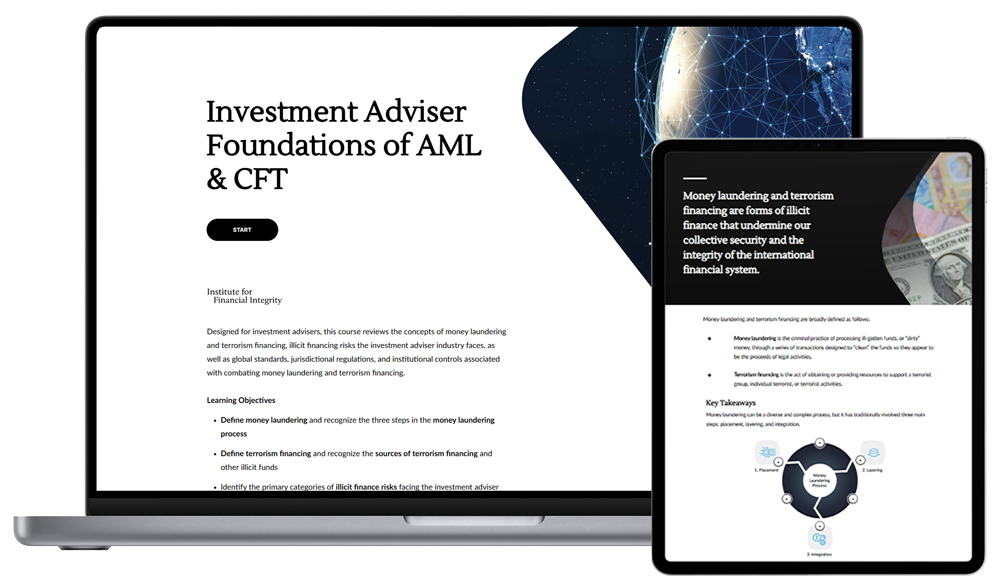Recent IAR Enforcement Actions
Review of Key Themes & Lessons Learned
📅 May 7, 2025
📅 May 7, 2025
Investment Adviser Representatives (IARs) play a pivotal role in the financial services industry. An investment adviser is an individual or company that is paid for providing advice about securities to their clients. Entrusted with providing sound financial advice and managing client assets, IARs are bound by stringent regulatory standards designed to protect investors and maintain market integrity. Recent enforcement actions by the Securities and Exchange Commission (SEC) underscore the critical importance of adherence to these regulations and highlight the consequences of non-compliance.
In this article we examine four recent enforcement actions and the thematic lessons that IARs can learn.
In January 2025, the SEC settled charges against three IARs—Tamir Shabat, Danny Z. Spiegel, and Joseph J. Orlando Jr.—for acting as unregistered brokers. Between June 2019 and March 2020, these individuals solicited investments for StraightPath Venture Partners LLC, offering interests in limited liability companies purportedly investing in pre-IPO companies. Despite not being registered as brokers, they engaged in activities such as providing marketing materials, advising investors, and receiving transaction-based compensation, which are all activities that fall under the definition of a broker-dealer. Registration as a broker imposes critical regulatory obligations, including disclosure requirements, supervision standards, and duties to act in the investors’ best interests. Operating outside of this framework may deprive investors of these protections. This case emphasizes the necessity for IARs to operate strictly within the bounds of their registration to ensure accountability and safeguard investor trust, and highlights the legal ramifications of unauthorized brokerage activities.
The SEC has intensified scrutiny on investment advisers’ marketing practices. In September 2024, nine registered investment advisers faced charges for disseminating advertisements containing untrue or unsubstantiated statements, testimonials, endorsements, or third-party ratings lacking required disclosures. These firms agreed to pay a combined $1.24 million in civil penalties.
Similarly, in April 2024, five additional firms were charged for advertising hypothetical performance without implementing policies to ensure the information was relevant to the intended audience. These actions highlight the SEC’s commitment to enforcing transparency and accuracy in marketing materials, reminding IARs of the imperative to substantiate claims and provide necessary disclosures to prevent misleading investors.
Conflicts of interest remain a focal point for regulatory enforcement. In December 2024, the SEC charged Rose Park Advisors LLC and its managing partner, Matthew Q. Christensen, for failing to disclose conflicts arising from Christensen’s familial and financial ties to the CEO of a portfolio company in which their client invested nearly $50 million. The undisclosed relationships included familial connections and financial transactions that could have influenced investment decisions. This case serves as a critical reminder for IARs to identify, disclose, and manage conflicts of interest transparently to uphold their fiduciary duties. As fiduciaries, IARs are legally obligated to act in their clients’ best interests. This duty requires prioritizing the clients’ needs above personal or firm gain and maintaining honest communication.
Robust compliance frameworks are essential for regulatory adherence. These regulations are designed to promote transparency, consistency, and accountability to protect investors, foster trust in the financial system, and reduce the risk of misconduct.
In September 2023, Apexium Financial LP was charged for failing to manage conflicts of interest in line with its firm brochures and for not maintaining adequate compliance policies and procedures. The firm did not document why it determined that using an affiliated firm was in the client’s best interest, despite representing in its brochures that such assessments would be made. Additionally, Apexium neglected to conduct required annual reviews of its compliance policies and procedures in 2018 and 2019. This enforcement action underscores the necessity for IARs to not only establish but also diligently implement and review compliance policies and procedures to ensure alignment with regulatory obligations.
These enforcement cases reveal several critical standards in the regulatory landscape for IARs:
The SEC’s recent enforcement actions serve as a stark reminder of the imperative for IARs to maintain rigorous compliance with regulatory standards. By understanding the requirements of their regulatory obligations—whether in marketing, managing conflicts, or compliance infrastructure—IARs can safeguard their reputations, protect investor interests, and contribute to the overall integrity of the financial system.
It is important to note that we may see some shifts in future regulations and enforcement as a result of the change in administration in early 2025 and the changes in regulatory focus. Indications are that there may be a shift in the SEC’s priorities toward capital formation, which includes creating an environment that facilitates businesses’ access to funding through public and private markets. We are also seeing renewed emphasis on traditional enforcement areas such as material misstatements and insider trading. The SEC is also intensifying its efforts in regulating crypto assets through a newly-formed task force and adjusting its stance on recordkeeping, including the handling of off-channel communications.
The SEC’s fiscal year 2024 enforcement actions resulted in record financial remedies, and while enforcement efforts are expected to continue in 2025, the focus may shift in alignment with the new administration’s priorities.

A key pillar of a comprehensive AML program is training. Designed for investment advisers, this course reviews the concepts of money laundering and terrorism financing, illicit financing risks the investment adviser industry faces, as well as global standards, jurisdictional regulations, and institutional controls associated with combating money laundering and terrorism financing.










 Trump’s IEEPA Tariffs – Blurring the Lines Between Trade Sanctions and...
Trump’s IEEPA Tariffs – Blurring the Lines Between Trade Sanctions and...This site uses cookies. By continuing to browse the site, you are agreeing to our use of cookies.
Accept settingsHide notification onlySettingsWe may request cookies to be set on your device. We use cookies to let us know when you visit our websites, how you interact with us, to enrich your user experience, and to customize your relationship with our website.
Click on the different category headings to find out more. You can also change some of your preferences. Note that blocking some types of cookies may impact your experience on our websites and the services we are able to offer.
These cookies are strictly necessary to provide you with services available through our website and to use some of its features.
Because these cookies are strictly necessary to deliver the website, refusing them will have impact how our site functions. You always can block or delete cookies by changing your browser settings and force blocking all cookies on this website. But this will always prompt you to accept/refuse cookies when revisiting our site.
We fully respect if you want to refuse cookies but to avoid asking you again and again kindly allow us to store a cookie for that. You are free to opt out any time or opt in for other cookies to get a better experience. If you refuse cookies we will remove all set cookies in our domain.
We provide you with a list of stored cookies on your computer in our domain so you can check what we stored. Due to security reasons we are not able to show or modify cookies from other domains. You can check these in your browser security settings.
These cookies collect information that is used either in aggregate form to help us understand how our website is being used or how effective our marketing campaigns are, or to help us customize our website and application for you in order to enhance your experience.
If you do not want that we track your visit to our site you can disable tracking in your browser here:
We also use different external services like Google Webfonts, Google Maps, and external Video providers. Since these providers may collect personal data like your IP address we allow you to block them here. Please be aware that this might heavily reduce the functionality and appearance of our site. Changes will take effect once you reload the page.
Google Webfont Settings:
Google Map Settings:
Google reCaptcha Settings:
Vimeo and Youtube video embeds:
You can read about our cookies and privacy settings in detail on our Privacy Policy Page.
Privacy Policy